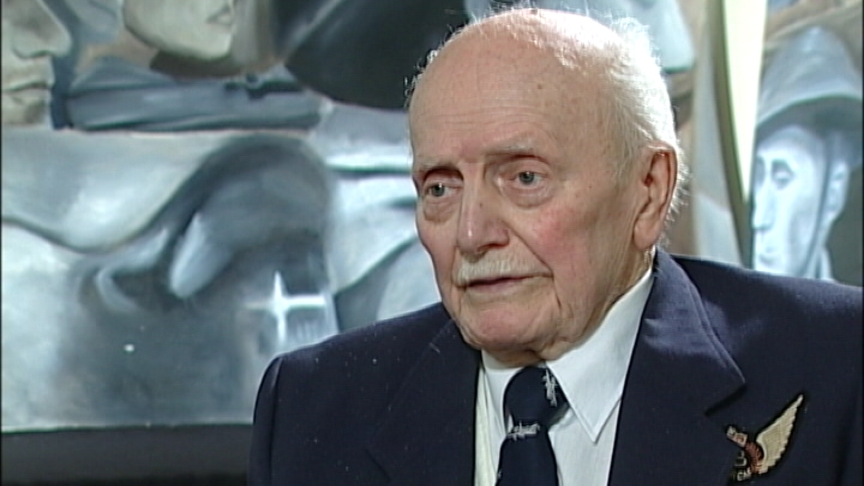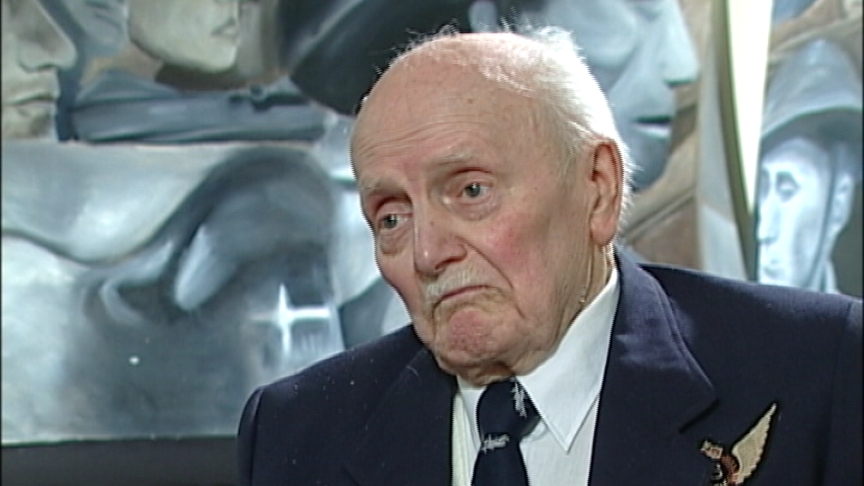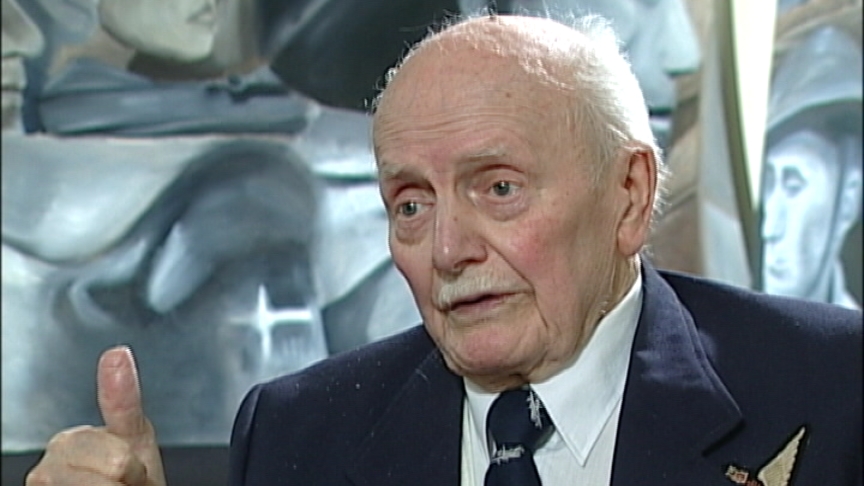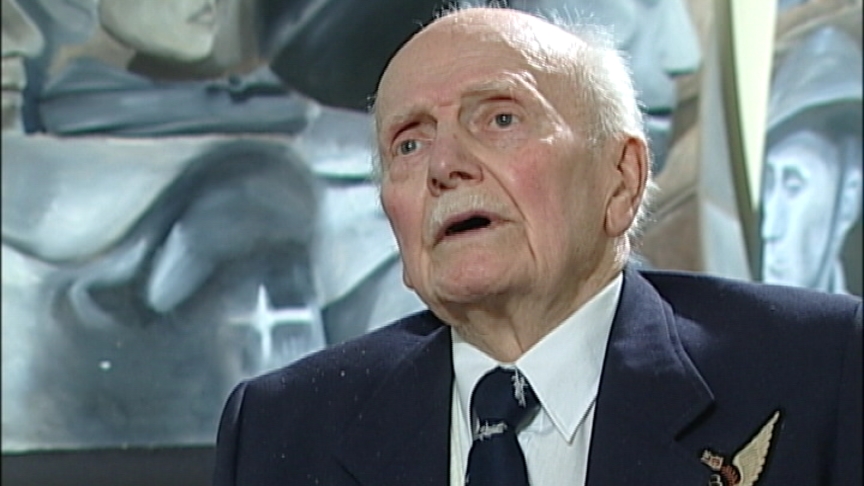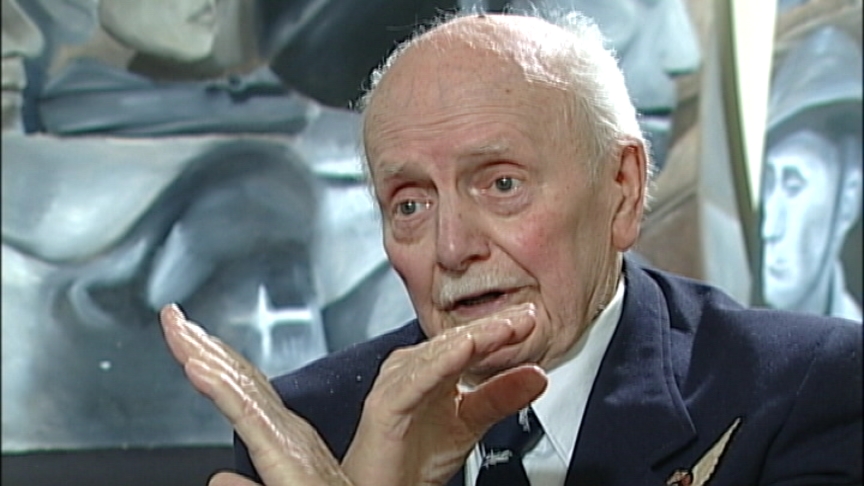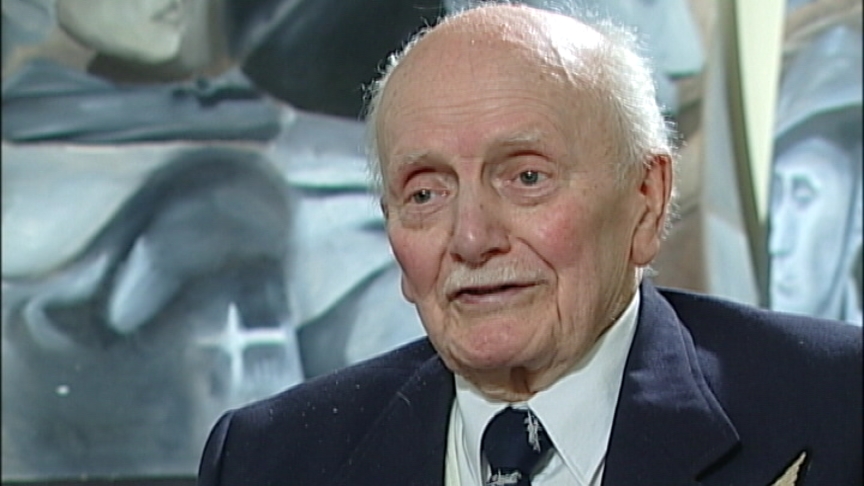Bombing Strategies
Heroes Remember
Bombing Strategies
Transcript
Description
Mr. Reid describes American 'formation' bombing vs. the more individualistic approach used by the Royal Air force. Mentions consequences of missing targets.
Bill Reid
Mr. Reid was born on August 15, 1922, in Toronto, Ontario. His upbringing was middle class, and he disagreed with Hitler's ideology. As a consequence, and along with 5 friends, he decided to enlist in the Royal Canadian Air Force so that he might ‘learn to fly at the government's expense.' Ironically, government cutbacks cost him his ambition as a pilot and he was redeployed to bomber and gunnery school in Trenton. After sailing to England, Mr. Reid was eventually posted to Upper Hayford, where he trained on both Anson and Stirling bombers. He was finally posted to 49 Squadron, 5 Group and was the air bomber in a crew of seven aboard a Lancaster bomber.. Mr. Reid flew missions in both the German and Norwegian theatres. He retired from active service upon returning home with the rank of AC2, Flying Officer.
Meta Data
- Medium:
- Video
- Owner:
- Veterans Affairs Canada
- Duration:
- 02:04
- Person Interviewed:
- Bill Reid
- War, Conflict or Mission:
- Second World War
- Battle/Campaign:
- Bomber Command
- Branch:
- Air Force
- Units/Ship:
- 49 Squadron / 5 Group
- Rank:
- Flying Officer
- Occupation:
- Air Bomber
Related Videos
- Date modified:



